Expanding Research Ties: Prelude to Deeper Engagement
ITSR, KIEP and KIET hold joint workshop on industrial and trade policy formulation
On the December 19th Institute for Trade Studies and Research of Ministry of Industry, Mines and Trade held a workshop on “export promoting industrial policies” and “Accession to WTP” in collaboration with Korea Institute for International economy and Korea Institute for Industrial Economy. This workshop which is organized at the time of expanding knowledge sharing initiatives between the two countries was attended by high level officials of Ministry of Industry, Mine and Trade along with scholars of trade and industrial policy fields and members of business community. Through the two days long workshop, five panels are planned which will involve lectures from Korean scholars and policy discussions with the Iranian side.
In inauguration ceremony of this workshop, Dr.Razavi, the president of Institute for Trade Studies and Research, stated that the sheer volume of this bilateral exchange between Iran and South Korea, emphasizes the importance of relations between scholar and policy communities of the two countries to constantly update and refresh mutual understanding of operations on the ground.
He continued to his speech stating that the Korean export-based growth strategy which hurled the country from exports valuing tens of billions dollars to hundreds of billions of dollar in the span of two decades, offers an inspiring story for any nation planning high levels of growth and at the current state of Iranian economy, on numerous areas, Iranian scholars and policy makers could learn a good deal by reviewing and analyzing Korean trade and industrial development policies.
Dr.Razavi also emphasized that with South Korea’s extensive background in negotiating trade deals, and being one of the founding members of the World Trade Organization, an intricate understanding of the organization itself and its different processes, Iranian scholars and policy makers could make good use of this experience, considering Iran’s accession bid to the WTO.
Furthermore, Dr.Razavi established that many untapped production capacities exist in Iran which provide the Koreans with ample opportunities for starting joint ventures with Iranian partners, which will carry with them considerable added-value for the two sides. In addition, pursuing joint infrastructure projects in transportation and power sectors of the region could play a significant role in facilitating trade and production flows between Korea and the West Asia Region; further partnerships in O&G refinery and distribution of downstream petrochemical products could also be envisaged.
After the inauguration ceremony, Dr. Dong-Joo Joo of Korea Institute for Industrial Economy and Trade presented a historic analysis of Industrial development policies and their performances in South Korea since 1960. His analysis classified the Korean experience into seven stages; the Import Substituting Policy before 196; Promoting Export-oriented Light Industry between 1961 and 1972; Promoting Heavy & Chemical Industry between 1973 and 1979; Industrial Rationalization between 1980 and 1987 and Promoting High-Tech Industry between 1987 and 1990s. Dr. Joo claimed that since the 2000s, the Korean economy has been in search of new growth engines and the search still continues.
In the second panel, Dr. Doohee Lee of Korea Institute for Industrial Economy and Trade took a different approach to study Korea’s industrialization by analyzing Korean industrial complexes. He asserted that in the period between1962 until 1972 the Korean complexes were solely focused on imitation, and in later stages they transformed themselves to industrial clusters the imitated creatively (1980-1997) and at the present time, innovation is the only survival strategy for these clusters. Dr.Lee believed that Iran can benefit from the innovation sharing partnerships by applying and leveraging on Korea’s technology and service expertise to materials, parts, and final products which are in the middle of the global value chain and can catch up with advanced countries in a short period just as Korean industrialization: “from imitation to innovation.”
The workshop will continue until December 20th and at the second day will be focused on trade policies and the WTO accession processes. Policy scholars from the Korea Institute for International Economy will present in these panels of which the topics revolve around WTO accession negotiation on services and goods and the strategies that could be deployed by Iran in formulating its special commitments and concessions.


